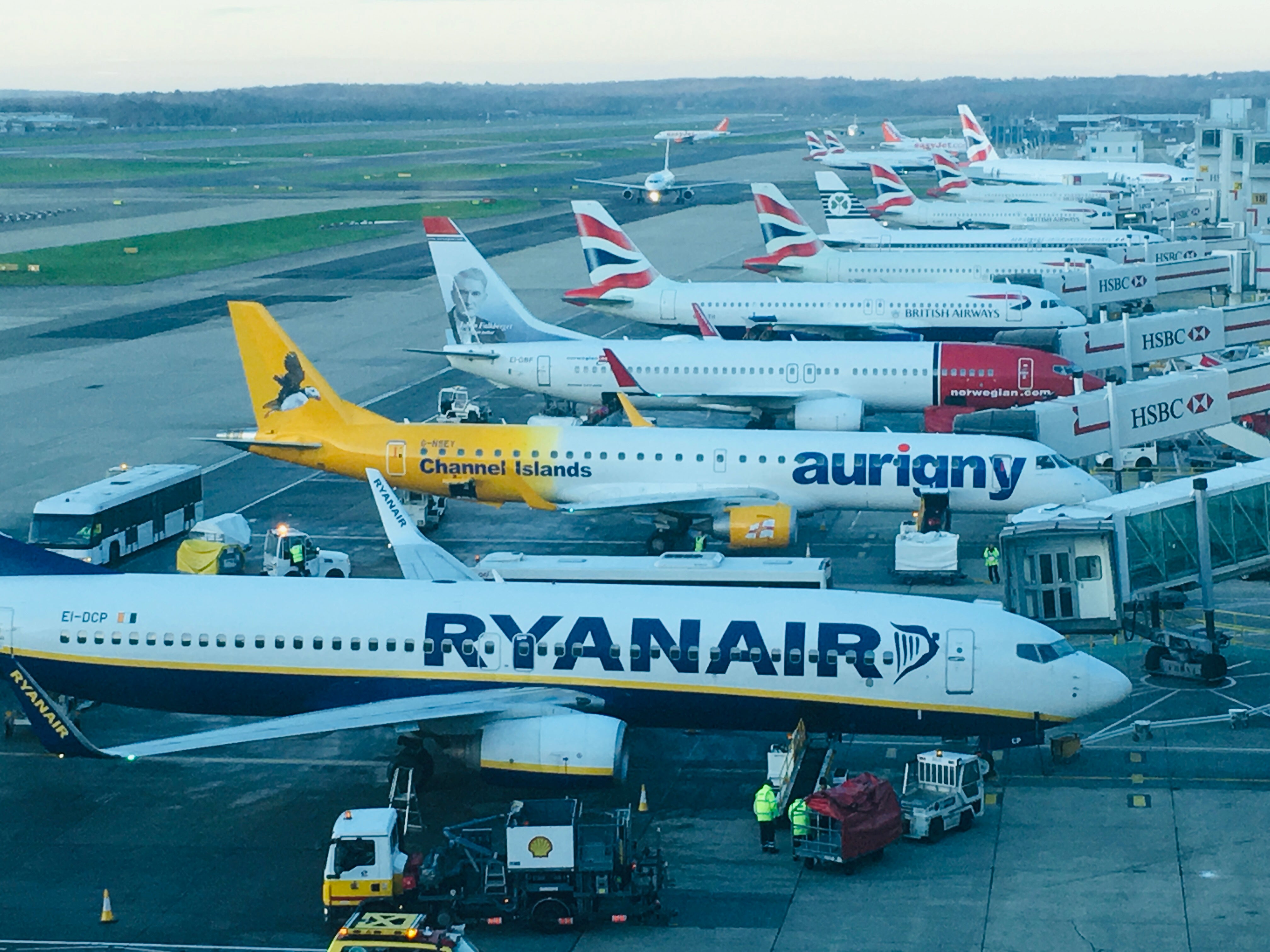Could CO2 ever be converted into jet fuel?
A new study raises the possibility, but it could be decades before such technologies are readily available, Daisy Dunne explains


Reducing the carbon footprint of air travel is one of the major obstacles that the world faces in tackling the climate crisis.
Air travel is a particularly polluting form of transport for two main reasons – the burning of jet fuel causes the release of greenhouse gas emissions, particularly CO2, and aircraft also produce other climate-warming substances, such as water vapour, soot and nitrogen oxides.
When all of these pollutants are added up, aviation accounts for about 3.5 per cent of the warming impact caused by humans in the present day, according to a recent research paper.
The reason why tackling emissions from aviation poses a particular challenge is that there are few readily available low-carbon solutions on the horizon. This is in contrast to petrol cars, for example, which are likely to be replaced by electric vehicles in the coming decades in high-income countries.
A new study published in Nature Communications raises the possibility of cutting aviation emissions through the use of jet fuel made from CO2. In a laboratory setting, a team led by researchers at the University of Oxford has demonstrated a new way of converting CO2 into jet fuel using cheap iron-based catalysts.
Speaking to The Independent, study co-author Professor Peter Edwards, a chemist at the University of Oxford, says: “This catalyst is abundant, low-cost but highly effective in converting the main greenhouse gas, CO2, into aviation hydrocarbon fuel range in one step.
“This is a critical advance in the transition to decarbonise the aviation industry by moving away from fossil-based aviation fuel. From a broad social and infrastructure view, a major advantage of using these sustainable aviation jet fuels from CO2 is that there is no requirement for major aircraft redesign while still achieving decarbonisation.”
Though the research is so far still at the experimental stage, the authors hope it could lead to the development of synthetic jet fuels made using CO2 captured from the air. In theory, these synthetic fuels would use CO2 captured from the atmosphere, which would then be re-emitted when the fuel is combusted for flight. Because of this, synthetic fuels could have a much lower carbon footprint overall than traditional jet fuels made from fossil fuels, the authors argue.
However, it is worth noting that many of the steps needed to create synthetic fuels are still in development. For instance, technologies for capturing CO2 from the air have so far only been piloted at a small scale.
Most synthetic jet fuels are probably decades away from being a commercial reality, and it is still the case that the best solution for tackling aviation emissions in the short term would be for people to take fewer flights, adds Mike Childs, head of science, policy and research at Friends of the Earth.
He tells The Independent: “There’s quite a lot of research and work looking into how to make synthetic fuels for aviation and other uses, which is good because ultimately we need to not only get to net zero in the UK, but we need to be able to go to negative emissions and help to restore the climate. So we do need innovation for challenging areas like aviation.
“But the reality at the moment is these synthetic fuels are at the early experimental stage. They’ll cost an absolute fortune. They are a solution for decades away rather than the near term, and what we need in the near term is to make sure we’re managing the demand for aviation, and encouraging people to use other options where viable.”
The reduction in air travel during the pandemic has shown people that frequently flying to attend business meetings and conferences is not necessary, he added: “I think business travellers and academics are now questioning whether they really need to travel halfway around the world to attend a seminar.”
Prof Edwards notes that the “challenge” going forward will be to “create the right infrastructure and production capability to establish a new, viable sustainable fuel industry in the UK”.
“We are in advanced discussions with UK industries to set up a pilot plant demonstration to show its economical, technical and societal advantages so as to transition to commercial scale,” he says.
Though synthetic jet fuels are more likely to be part of a long-term solution rather than an immediate fix, their development is still likely to be useful for tackling the climate crisis, adds Mr Childs.
“There’s very few voices saying we shouldn’t have aviation at all in the future,” he says. “If we are going to have some aviation in the future, we need to make sure it’s as clean as possible, and that’s where these fuels might have a role to play.”

Join our commenting forum
Join thought-provoking conversations, follow other Independent readers and see their replies
Comments